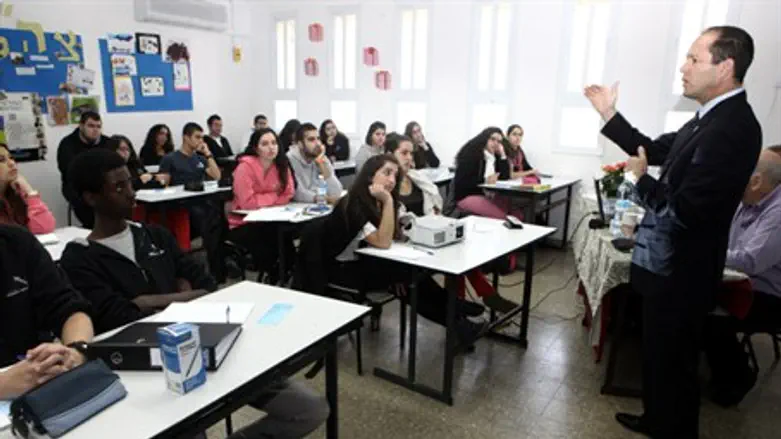
New rules from the Education Ministry that will require Yeshiva high schools and Ulpanot to publish information on salaries and expenses will not necessarily mean lower tuition, as many parents believe, according to an official with years of experience in the national religious school system. Instead, Ariel Finkelstein told Arutz Sheva, parents will see that they are paying higher tuition fees than they would in other school systems because they are getting more for their money.
According to the new rules, schools will have to begin publishing the salaries and benefits of their top staff, parents will receive itemized listings of what their tuition money goes for, and schools will have to give preference to using resources to strengthening their institutions before expanding or building new ones.
The new rules, which go into effect this week, are designed to empower parents by giving them as much information as possible on where their money is going. For years, rumors have circulated about extremely generous compensation packages for school principals and top staff, consisting of high salaries, bonuses, and free cars and houses. According to the new rules, parents will have an opportunity to review those compensation packages, with the expectation that they will use the information to negotiate tuition with the schools.
Although nowhere near the $8,000 to $20,000 parents of students at Yeshiva high schools and day schools are expected to pay for annual tuition, Yeshiva and Ulpana high schools can cost as much as $3,500 a year, making them by far the most expensive education option at any age in Israel.
But Finkelstein said that parents who are expecting to uncover “scandalous” salaries and expense accounts, and plan to use that information to pressure schools to lower tuitions for their children, may be disappointed. If there are such phenomena, he said, they are certainly few and far between.
The expenses at the Yeshiva high schools and Ulpanot are higher, among other reasons because the education in those schools is better than in other school systems, said Finkelstein. Students at Yeshiva high schools and Ulpanot spend many more hours in class, as they learn both a religious and secular curriculum, with the attendant staff. Many parents also believe that they are paying higher tuition because the government funds the Yeshiva high schools and Ulpanot at a lower rate than they do other school systems, but this too is incorrect; Yeshiva high schools and Ulpanot get more money than most other school systems, Finkelstein said.
In the end, Finkelstein said, the sharing of all information with parents is a positive thing, because it will make parents a true partner in the administration of their childrens' schools. And if parents want lower tuitions, they are going to have to decide, together with schools, what programs to cut out and which ones to keep.